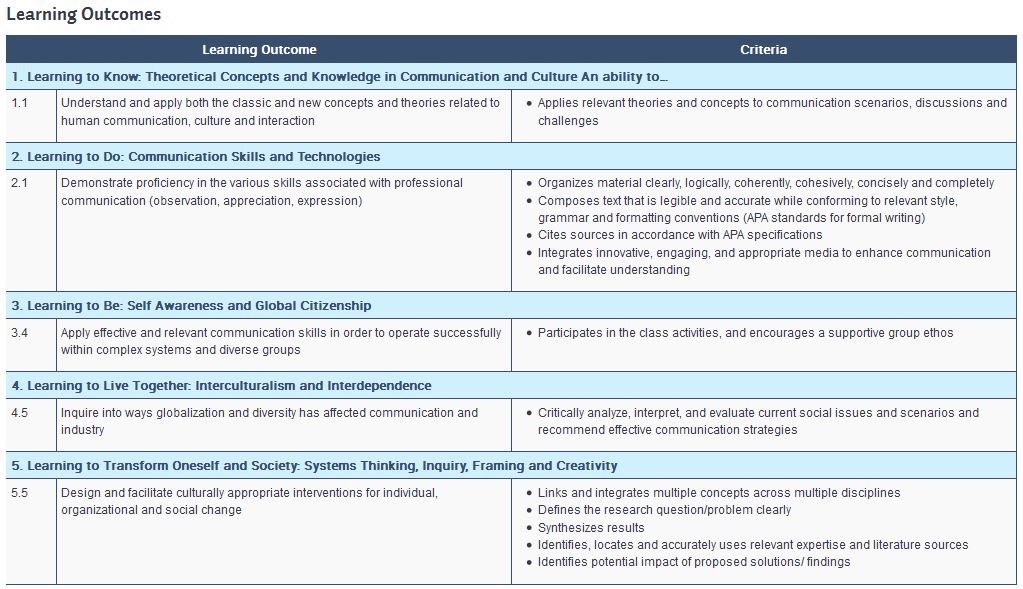IICS 551 - Organizational Communication and Culture
Intercultural and International Communication course on Organizational Communication and Culture analyzes organizational structures and management styles with a focus on culture. This course considers areas of organizational communication and culture such as crisis management, corporate image, identity, and reputation. Analysis of organizational culture and culture change, leadership theories, social relationships and networks, communication audits, power and control in organizational life, conflict in organizations, ethics and values, and corporate social responsibility.
Culture manifests itself in various forms – through the art of a society (paintings, sculpture, dance, architecture, literature, music, etc.), through war or violence, through public outcry, through legends and myths, through language, speeches and/or demonstrations. These expressions influence what become the norms of a society or culture over time – what its members will and will not accept from those within and outside of the society. Most importantly, culture affects our worldview and perception of things, issues and people. Organizations too have cultures – companies, NGOs, international organizations, community groups etc., all have distinctive cultures and even the various units/departments within the particular organization will have its own sub-culture (or flavour). Because organizations have cultures, they engage in intercultural communication. This is very obvious in this era of globalization, which has made our world smaller and more connected. Communication plays an integral role in cultures and definitely in organizations. Culture is not static, just as people and communication are not static and therefore the study of those interactions, especially in organizations, is fascinating, and the focus of this course.
Culture manifests itself in various forms – through the art of a society (paintings, sculpture, dance, architecture, literature, music, etc.), through war or violence, through public outcry, through legends and myths, through language, speeches and/or demonstrations. These expressions influence what become the norms of a society or culture over time – what its members will and will not accept from those within and outside of the society. Most importantly, culture affects our worldview and perception of things, issues and people. Organizations too have cultures – companies, NGOs, international organizations, community groups etc., all have distinctive cultures and even the various units/departments within the particular organization will have its own sub-culture (or flavour). Because organizations have cultures, they engage in intercultural communication. This is very obvious in this era of globalization, which has made our world smaller and more connected. Communication plays an integral role in cultures and definitely in organizations. Culture is not static, just as people and communication are not static and therefore the study of those interactions, especially in organizations, is fascinating, and the focus of this course.
IICS 551 - Assignment
Assignment - Organizational Analysis
Your browser does not support viewing this document. Click here to download the document.
